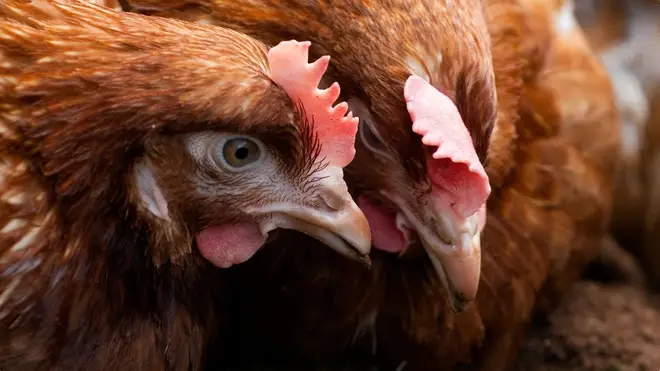
Nick Abbot 10pm - 1am
25 November 2021, 06:24 | Updated: 25 November 2021, 06:27

Lockdown measures are set to be introduced for poultry in the UK as bird flu cases continue to rise.
It will be a legal requirement from Monday for keepers to ensure their birds and poultry are housed or kept separate from wild birds, the Government has said.
It comes after a growing number of bird flu cases were detected in captive birds across several areas in Britain, including 15 cases in England, the Department for Environment, Food and Rural Affairs (Defra) said.
A bird flu protection zone was previously declared, meaning tougher rules for those keeping more than 500 birds.
All bird keepers were legally required to follow strict biosecurity measures to help protect their flocks - a precaution set to continue under the latest changes.
As a result, keepers must regularly clean and disinfect clothing, equipment and vehicles and limit access to non-essential workers and visitors.
Read more: Bird flu protection zone declared across Britain
Read more: Bird flu discovered in poultry as authorities impose 'control zone'
In a joint statement, the UK's four chief veterinary officers said: "We have taken swift action to limit the spread of the disease and are now planning to introduce a legal requirement for all poultry and captive bird keepers to keep their birds housed or otherwise separate from wild birds.
"Whether you keep just a few birds or thousands, from Monday 29 November onwards you will be legally required to keep your birds indoors, or take appropriate steps to keep them separate from wild birds.
"We have not taken this decision lightly, taking this action now is the best way to protect your birds from this highly infectious disease."
There have been concerns that birds migrating to the UK from mainland Europe bring the disease over during winter months.
However, the risk to human health remains very low, according to public health advice, and there is a low food safety risk.